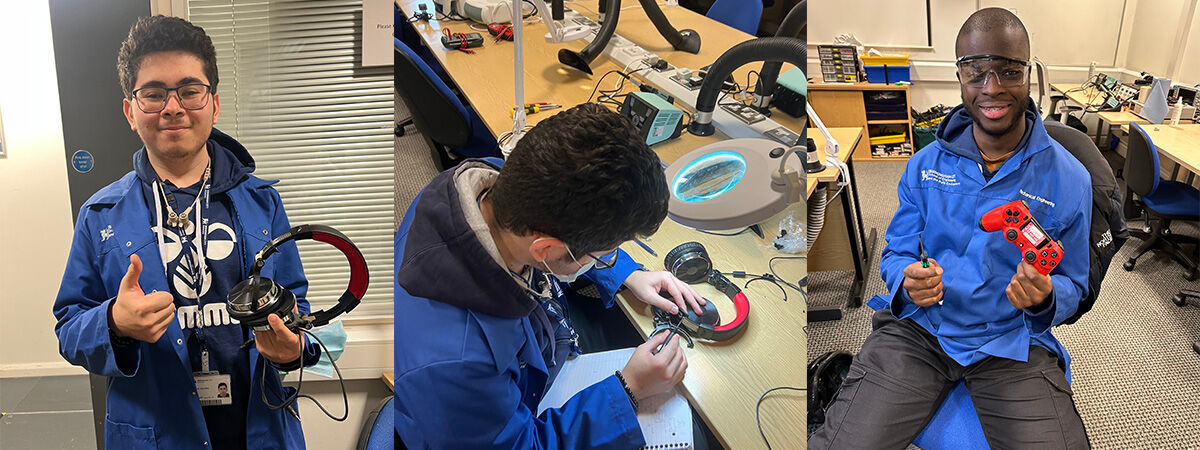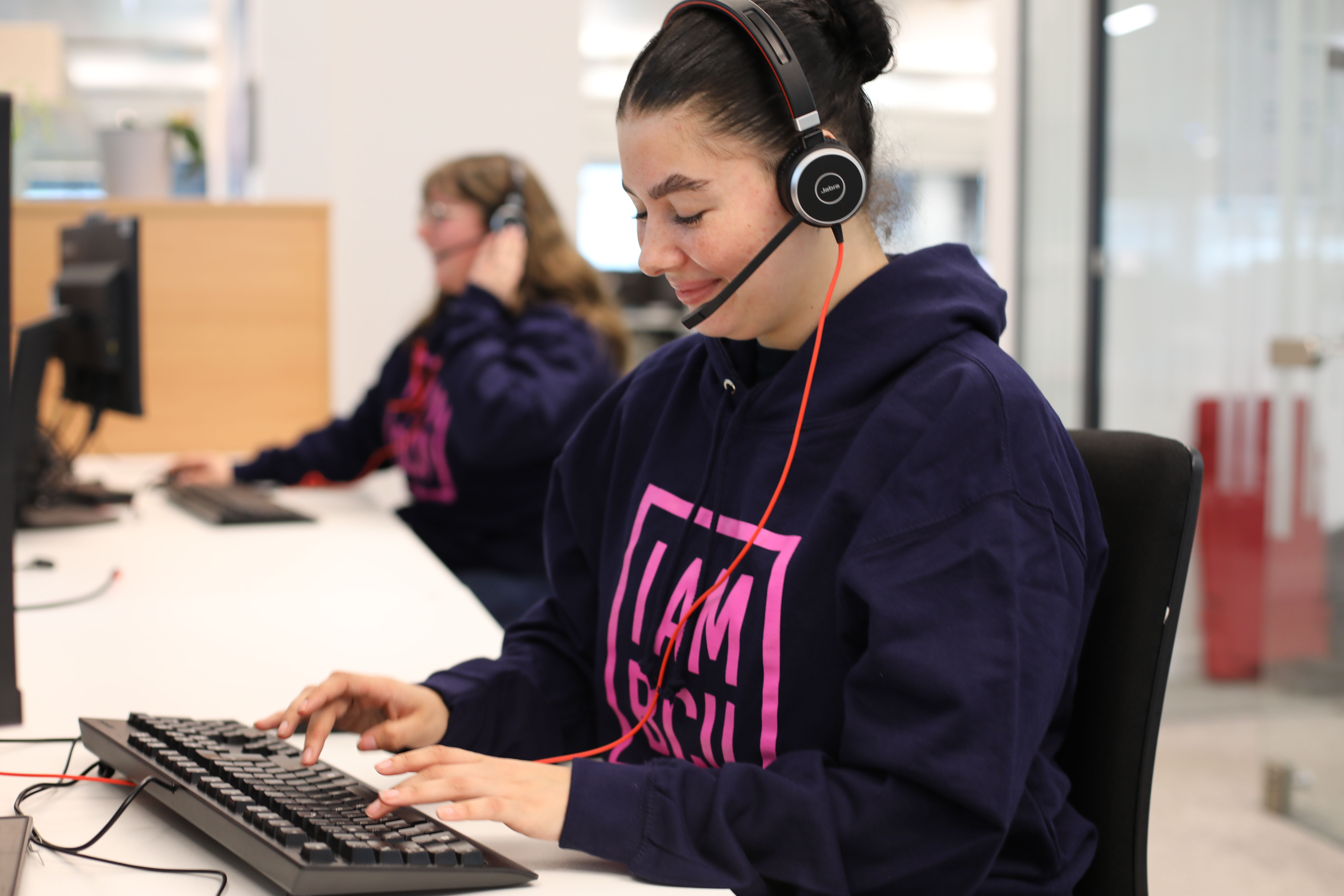What is the BCU Repair Lab?
Our Engineering department has launched a Repair Lab in which students can get hands-on repairing broken appliances and gadgets. Student Technician and Repair Lab lead, Khushmeet Singh, tells us more about it.
What is Repair Lab all about?
The aim is to reduce the amount of electrical and electronic waste that ends up in landfill by giving broken items a new lease of life, whilst also saving money and resources, and providing an interesting and engaging learning opportunity. What makes BCU Repair Lab unique is that students are able to re-design and improve faulty parts and can use in-house facilities and equipment such as computer aided design (CAD) and 3D printers to produce replacement parts.
The concept for Repair Labs was inspired by Repair Café which is established in the wider community where neighbours get together and bring their broken electronics or appliances and have them diagnosed and fixed, for free, while enjoying a cup of coffee and a slice of cake. These café’s help build a sense of community and offer an opportunity to socialise and meet people. Repair Lab at BCU has similar ambitions to build student network groups and help technicians and academics provide more direct support.
In Repair Lab, we have repaired a number of articles including headphones, an electric skateboard, a Playstation 4 controller, a coffee maker, a fan heater and have also printed broken parts using the in-house 3D printer.
What benefits does Repair Lab have?
There are also clear environmental advantages to be gained by running Repair Lab. According to the BBC, businesses and households in the UK generate 1.45 million tonnes of electrical waste annually (Southampton University, 2020). Replacing these failed articles with new requires more metals and minerals that have to be mined or recycled which is energy-intensive. In the UK, 35% of our energy comes from burning fossil fuels which are damaging to the climate and our planet. However, through initiatives such as Repair Lab we can all make small, individual changes which together can add up to a significant benefit with BCU leading by example.
What happens in Repair Lab?
In Repair Lab, students are fully supervised and learn practical skills that are transferable to the workplace, such as learning how to safely disassemble and reassemble a product, how to complete a PAT test, how to diagnose faults using test equipment and working out how they work and how they are manufactured.
In autumn 2022, we conducted some pilot sessions, and our repair success rate was 75%. The items repaired included two broken headphones. On the first set of headphones, we found the wiring was damaged; the student diagnosed the issue with a multi-meter and repaired it with a jumper wire. The second pair of headphones had a broken pivot hinge, so the student re-designed and improved the broken plastic part using Fusion 360 CAD software, and then 3D printed new parts using our in-house 3D printer. The new parts were then successfully fitted, and the headphones went back into service instead of landfill!
How can I get involved?
If you would like to participate in BCU Repair Lab, either as the supplier of a broken article, or as a willing volunteer then please feel free to get in touch for more information via Khushmeet.Singh@mail.bcu.ac.uk, or visit us in person at MP055, level 0, Millennium Point.

